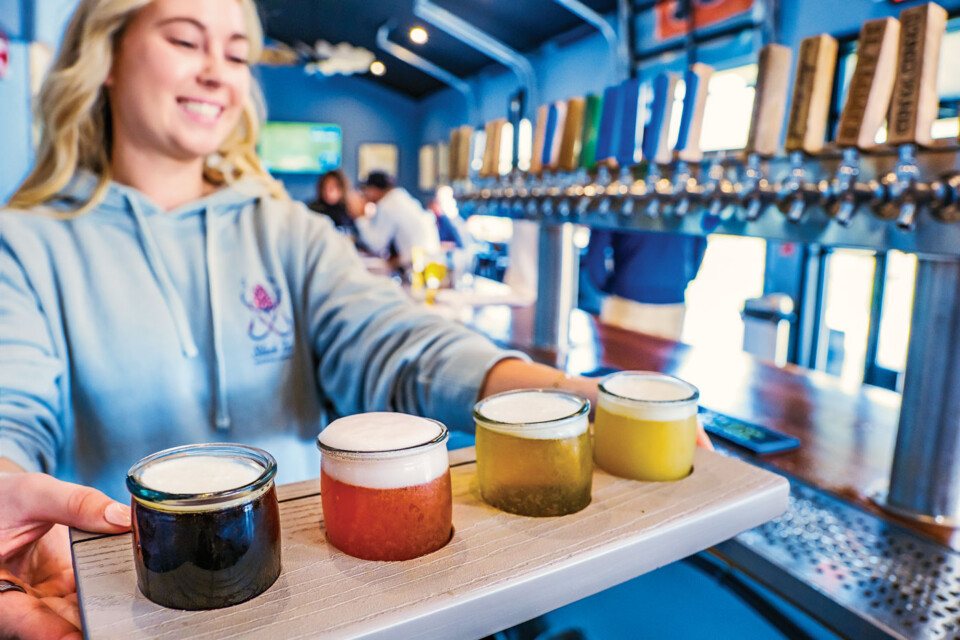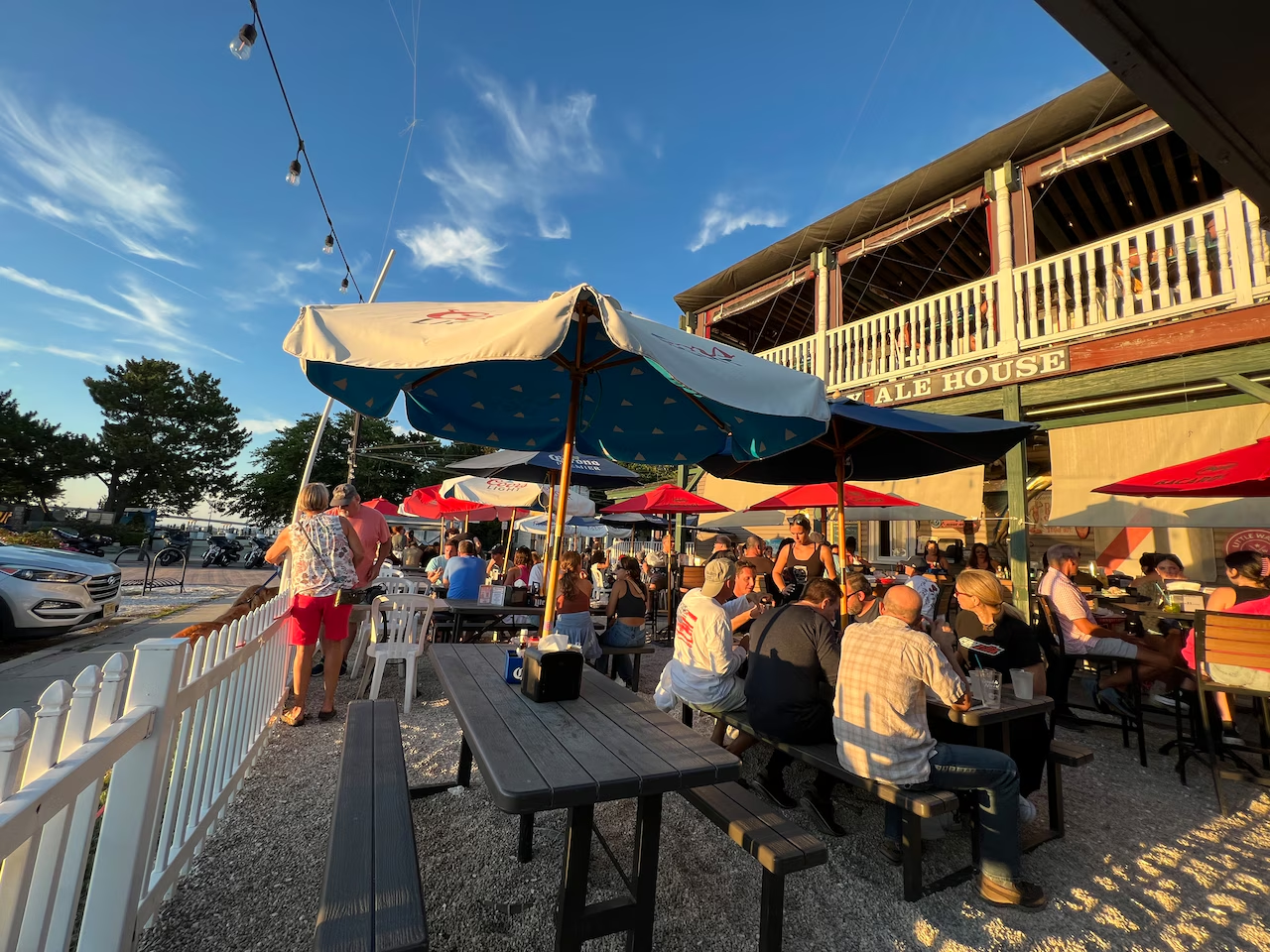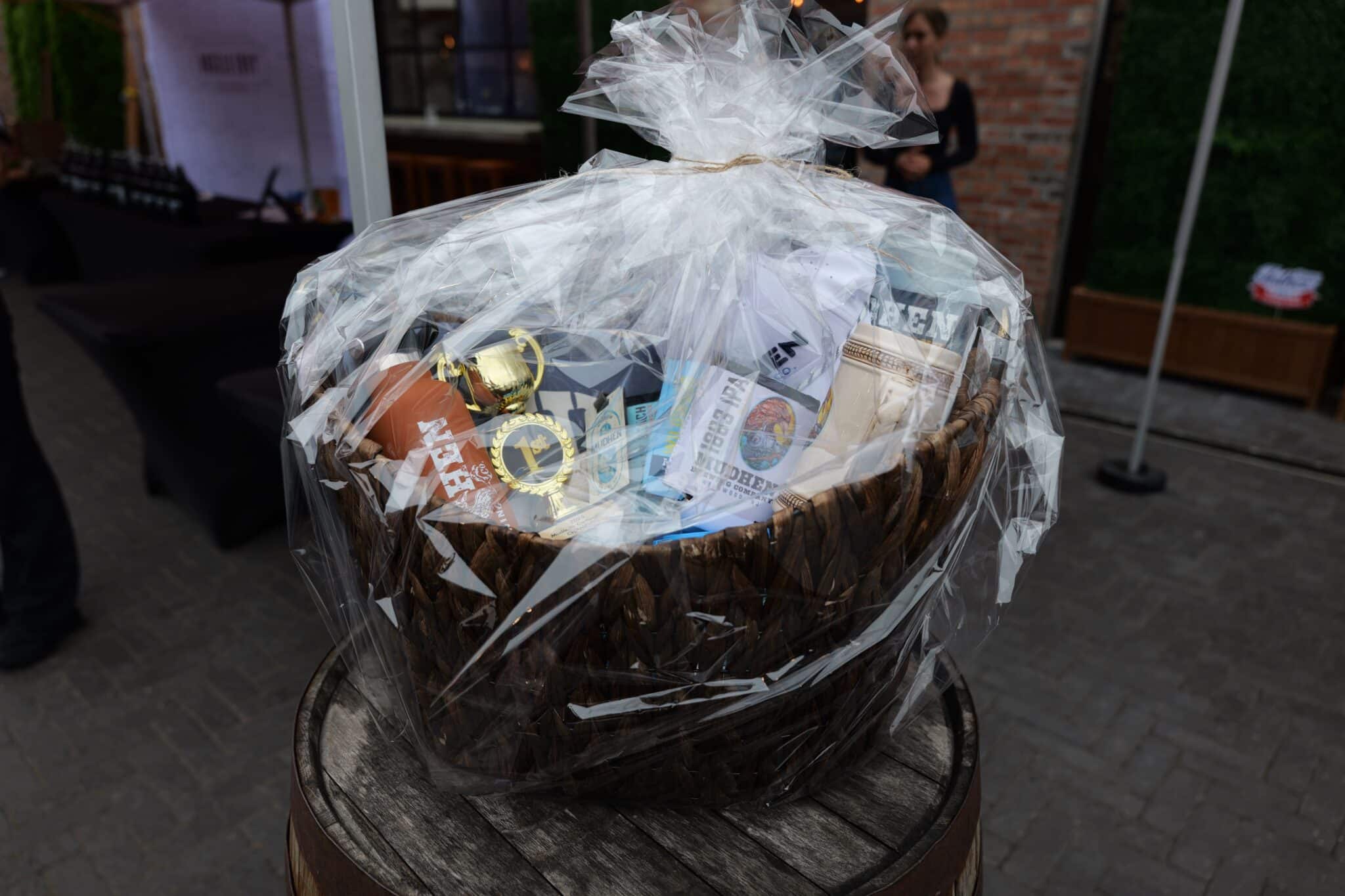Originally posted at northjersey.com
by Rebecca King
Stop into MudHen Brewing Company in Wildwood on any given day and you’ll find folks lounging on picnic benches, noshing on food made a few feet away in the kitchen, gulping beer brewed on-premises and sipping cocktails mixed behind the full bar.
It’s an ideal scene: the laid-back vibe and ingenious beers of a craft brewery, the variety of a bar and the all-important eats of a restaurant.
But there are only 17 brewpubs like MudHen in New Jersey. Brewpubs, according to the Brewers Association, are restaurant/breweries that sell 25 percent or more of its beer on-site. In New Jersey, breweries are not allowed to serve food, which means its brewpubs have to get very specific licensing.
There are about 108 craft breweries in New Jersey, according to Eric Orlando, executive director of the Brewers Guild of New Jersey, and more than 19,000 restaurants, according to the National Restaurant Association. So why so few brewpubs?
“It’s really expensive,” said Tony Cunha, brewmaster at MudHen. “You not only have to get a liquor license, but consider all the capital investments you have to get for your brewery and your kitchen. And you need people who can understand all different sides: the brewery kitchen and dining room.”
Joe David, owner of the oldest brewpub in the state The Ship Inn in Milford, concurs. “If you don’t have restaurant experience, I wouldn’t touch it with a 100-foot pole,” he said. “It’s a lot to take on two different businesses.”
So why have 17 businesses taken the plunge?
Ironically, it’s the same reason others don’t.1
The Ship Inn in Milford, NJ. a restaurant and brew pub, housed in an historic building and the first in New Jersey to brew their own beer in 1995. Beer brewed at the Ship Inn are Otay American Wheat, Red Coat and ESB.
“You’re a little bit more sustainable because you have a kitchen and bar,” said Cunha. “It’s not strictly about the liquid you’re providing.”
Brewpubs sit in a sweet spot of New Jersey’s complicated and archaic liquor laws that date back to the Prohibition Era.
In New Jersey, only a certain amount of full consumption liquor licenses are granted per-town based on population. Because of this scarcity, competition for these licenses is intense; some restaurants have paid over a million dollars for their liquor license.
Limited brewing licenses, which most craft breweries in New Jersey have, are much less expensive. But holders of this license, among other restrictions, can’t serve food on premises and can host a limited number of events per year. These limitations were set to appease restaurant owners who paid much more money for their right to serve alcohol.
Brewpubs must secure both a full consumption license and a restrictive brewing license (which doesn’t allow holders to bottle their own beer) — a pricey but advantageous process. Pricey because they have to pay for both licenses; advantageous because they can attract customers and make money off of the kitchen, bar and brewery.
“The cost is the true barrier of entry in opening a brewery,” said Iris Frank, co-owner of the newest NJ brewpub Village Brewing Company in Somerville.
The first to successfully run both was the Ship Inn, housed in an 1870s Victorian building that was transformed into the maritime-inspired English pub it’s known as today. It opened in 1983.
In 1995, New Jersey began offering restricted brewing licenses, and the Hall family (the original owners) snatched one up. It allowed them to legally brew craft beer and sell it in their pub.
“The Ship Inn isn’t just the first brewpub,” said Joe David. “When the Halls pulled that first tap it was the first legal brewing tap in the state of New Jersey as far as craft beer goes.”
David is the current owner and plans to rebrand the spot as Seventh Brewing Company at the Old Ship Inn. He and his partners had been looking for a place to launch their Seventh Brewing Company for years, and wound up buying a piece of New Jersey history.
David does plan to introduce new, experimental beers, but says he won’t touch the beloved Best Bitter, a cask-conditioned pale ale that has come to be The Ship Inn’s signature brew.
But the beers themselves are not what make brewpubs so special.
“We went to a lot of breweries to research before we opened our own, but the one thing that was missing was the element of food,” said Frank, owner of Village Brewing Company. “We just felt like it was important for us to round off that customer service.”
The ability to cook and brew legally under the same roof is what unites the old-school Victorian style of The Ship Inn, the backyard-barbecue vibe of MudHen, and the modern industrial feel of Village Brewing Company.
It’s also what excludes them from some of the most contentious arguments between craft breweries (which have repeatedly had their ability to host events in their taprooms restricted), BYOs (many of which lust after elusive liquor licenses to help turn a profit through alcohol sales) and restaurants with full bars (which often payed an exorbitant amount of money for a liquor license and feel entitled to looser regulations than breweries).
“When those conversations get heavy, we stand in the middle and put our hands up,” said Cunha of MudHen.
“There’s no side for us. I really agree with all sides.”




















